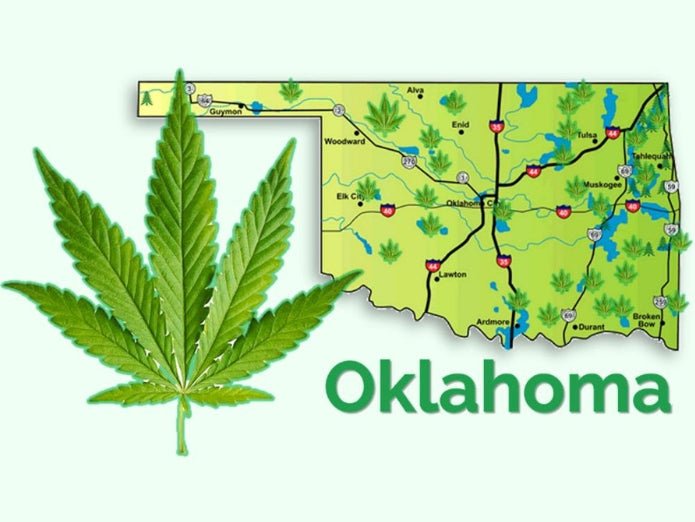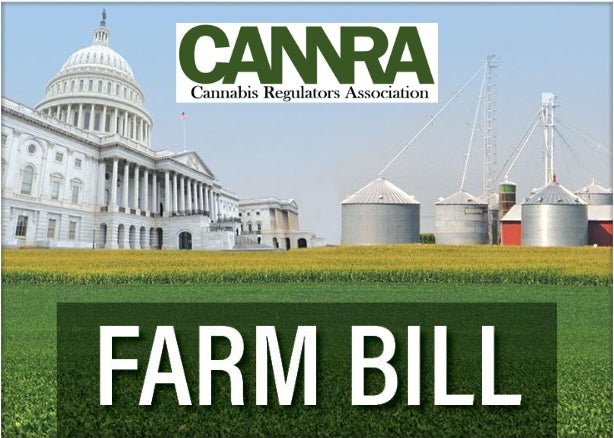On the heels of the Department of Health and Human Services (HHS) recommendation to move marijuana to Schedule III, researchers predict the agency will go along with the suggested change.

The 21st century is almost a quarter complete. In that time, marijuana has gone from an illegal narcotic carrying massive prison terms for those convicted of growing, selling and possessing it to a legal recreational drug available for purchase and consumption by individuals over 21 in 23 states.
Despite all that progress, cannabis remains illegal at the federal level. However, according to a recent government analysis, that designation is about to change radically. As first reported by MJBizDaily, the U.S. Drug Enforcement Agency (DEA) will "likely" make the unprecedented move to reschedule marijuana from a Schedule I to a Schedule III drug on the federal government's Controlled Substance List (CSL).
This past August, at the direction of the U.S. Food and Drug Administration, the Department of Health and Human Services (HHS) made the recommendation to reschedule cannabis following an extensive scientific review of the plant requested by President Biden last year as part of his decision to grant pardons to all individuals currently serving federal prison sentences for simple marijuana possession convictions.
In a statement following the announcement, an HHS spokesperson said, "Following the data and science, HHS has expeditiously responded to President Biden's directive to HHS Secretary Becerra and provided its scheduling recommendation for marijuana to the DEA on August 29, 2023. This administrative process was completed in less than 11 months, reflecting this department's collaboration and leadership to ensure that a comprehensive scientific evaluation be completed and shared expeditiously."
"Following the data and science, HHS has expeditiously responded to President Biden's directive to HHS Secretary Becerra and provided its scheduling recommendation for marijuana to the DEA on August 29, 2023. This administrative process was completed in less than 11 months, reflecting this department's collaboration and leadership to ensure that a comprehensive scientific evaluation be completed and shared expeditiously."
- HHS Spokesperson
However, the final decision on rescheduling narcotics listed on the CSL belongs to the DEA, the chief federal law enforcement agency in charge of policing illegal drugs in the United States.
With no clear precedent to guide the agency on handling the HHS' recommendation, many industry advocates and stakeholders were unsure how the DEA would respond. However, according to a report released on September 13 by the Congressional Research Service (CRS), the federal government's public policy think tank, the DEA confirmed to Congress in 2020 that it is "bound by law to defer to the U.S. Department of Health and Human Services (HHS) on matters of science and health."
Based on that assessment, it is doubtful that the agency will seek to prohibit this seismic shift in federal drug policy, which could have significant implications for the American cannabis industry and marijuana users seeking federal jobs or assistance, including public housing and military services.
As part of their analysis, researchers explained, "The DEA has testified in response to questioning at a congressional hearing in 2020 that it is bound by (Food and Drug Administration) recommendations on scientific and medical matters, and if past is prologue, it could be likely that DEA will reschedule marijuana according to HHS's recommendation. (The) CRS is unaware of any instance where DEA has rejected an FDA recommendation to reschedule."
"The DEA has testified in response to questioning at a congressional hearing in 2020 that it is bound by (Food and Drug Administration) recommendations on scientific and medical matters, and if past is prologue, it could be likely that DEA will reschedule marijuana according to HHS's recommendation. (The) CRS is unaware of any instance where DEA has rejected an FDA recommendation to reschedule."
- Congressional Research Service
If, as researchers and legal experts expect, the agency follows the HHS recommendation, it must also propose an appropriate change to federal law reflecting the reclassification.
That analysis and subsequent proposal by the DEA should be done and made by the end of the year, with the necessary modifications to federal law finalized as early as next spring. The effects of the scheduling change could be momentous, including the elimination of the dreaded Section 280E in the federal tax code, which prohibits cannabis companies from taking standard business tax deductions on their federal returns.
Along with the tax implications, another critical change to the overall handling of cannabis as a Schedule III drug is that it will now be legally available from a federal perspective with a doctor's prescription after a thorough FDA approval process.
The next six months will be a hectic and pivotal time in the national marijuana narrative. Much like the end of alcohol prohibition in the 1930s, taking cannabis from a Schedule I narcotic to a fully legal recreational substance will require multiple phases and a tremendous amount of cooperation, communication and education by lawmakers, activists, stakeholders and consumers.
However, the first steps toward that seemingly inevitable eventuality are already being taken. What remains unknown is how many more steps will be needed to complete the journey and how long it will take to achieve the final goal.







































